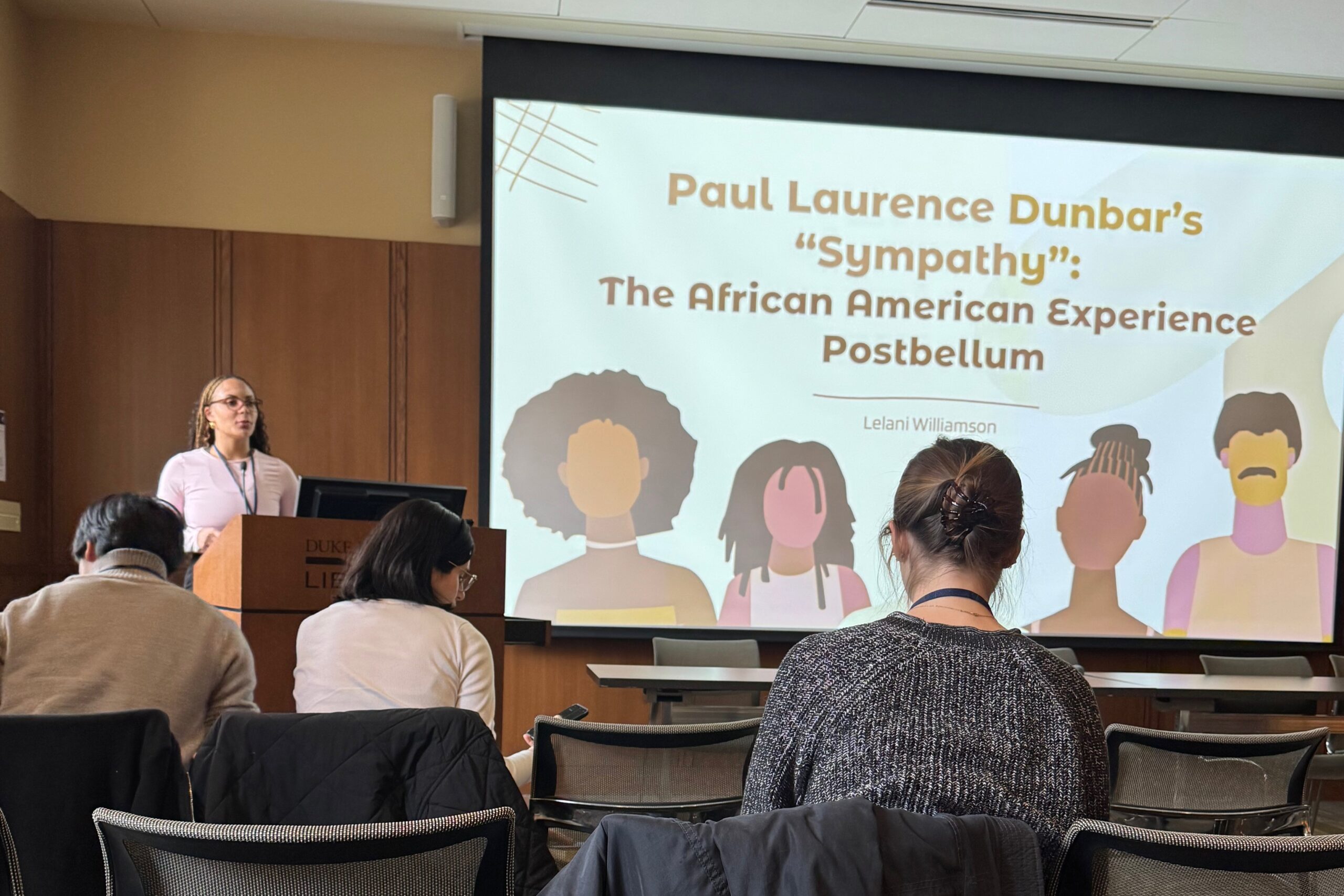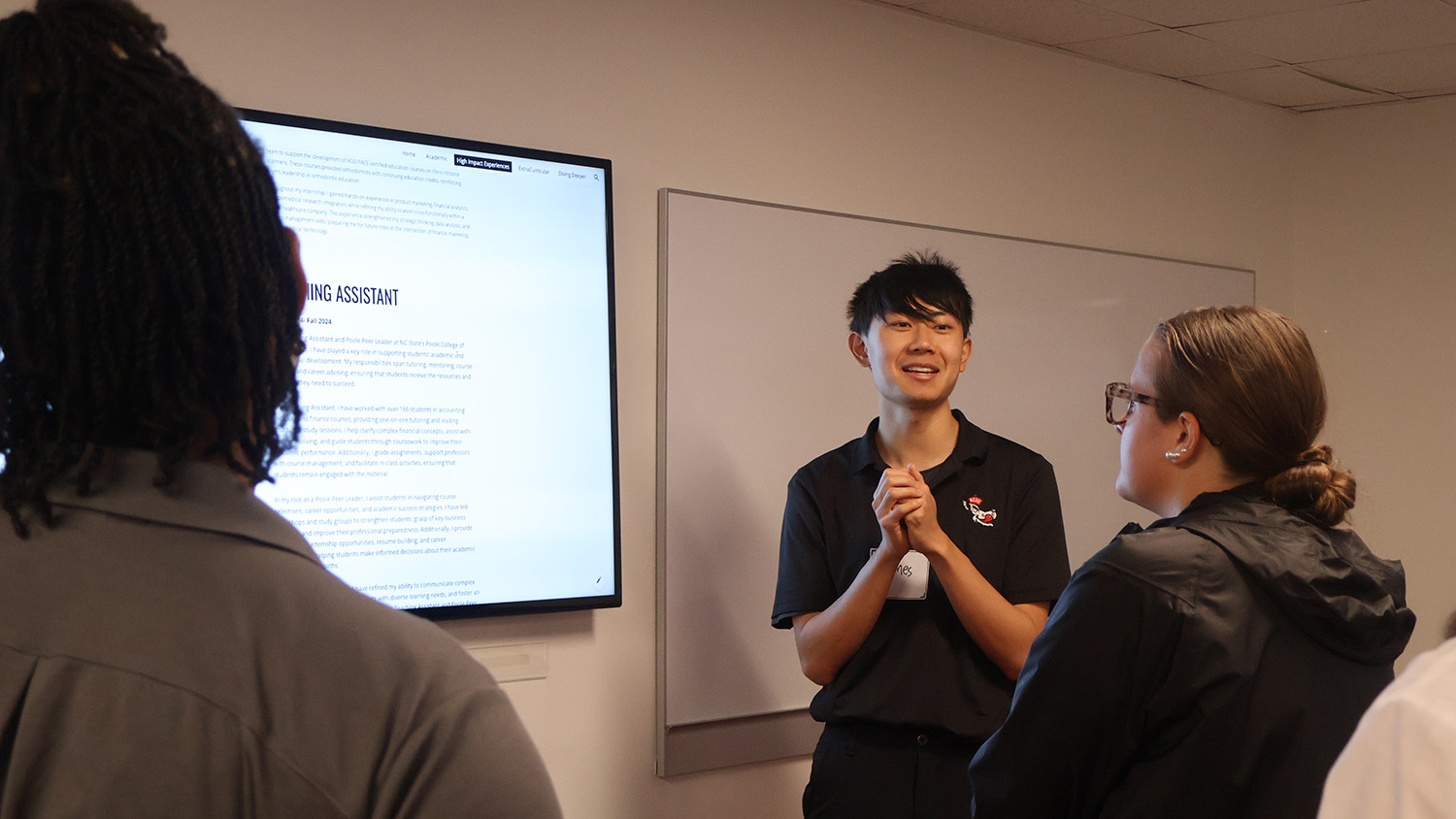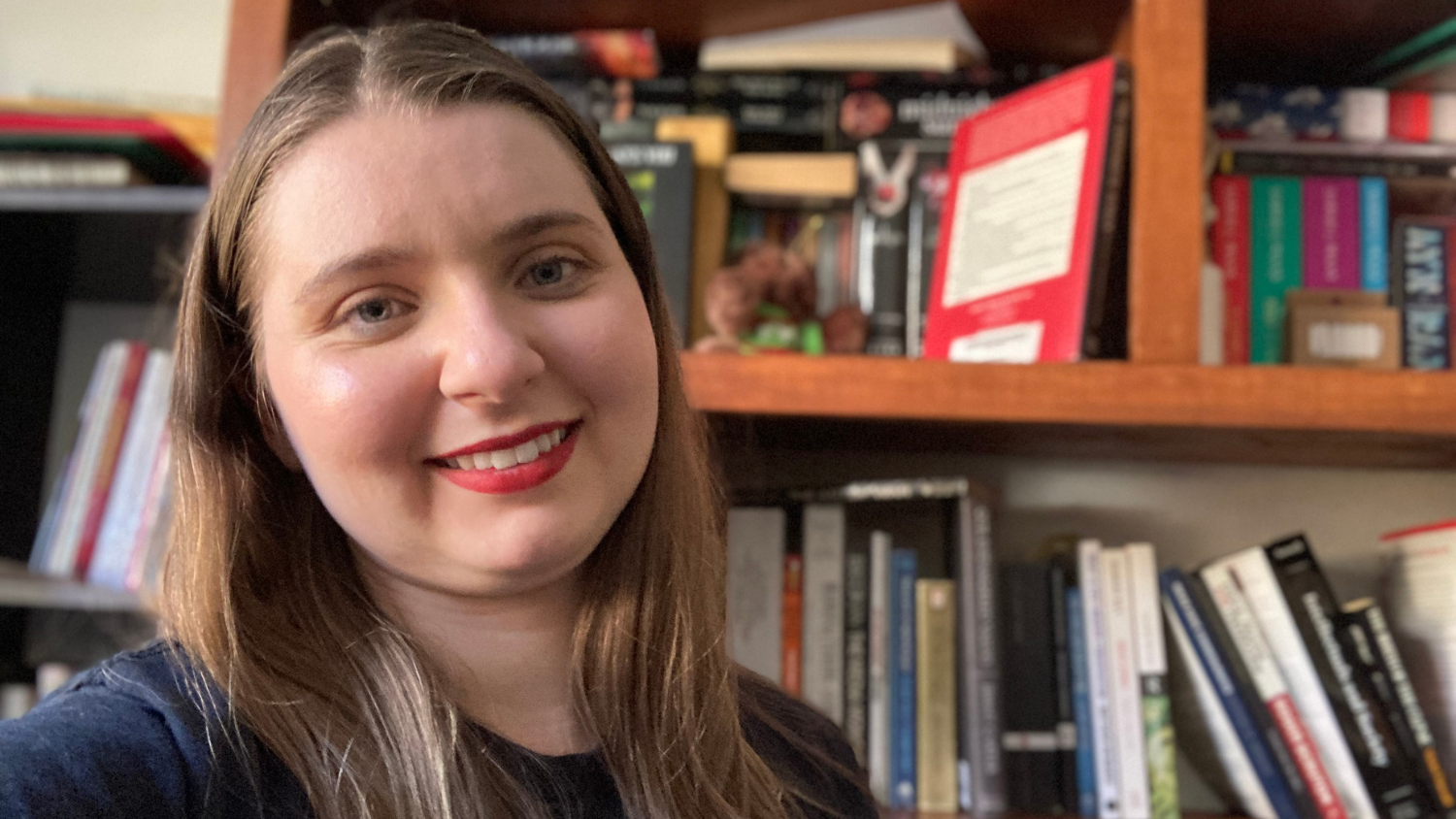Spotlight on Our Students: Caleb Keaveney
The University Honors and Scholars Program recently spoke with Caleb Keaveny about the recent Goldwater award he received and how he plans to use the funds for his research on planetary atmospheres.
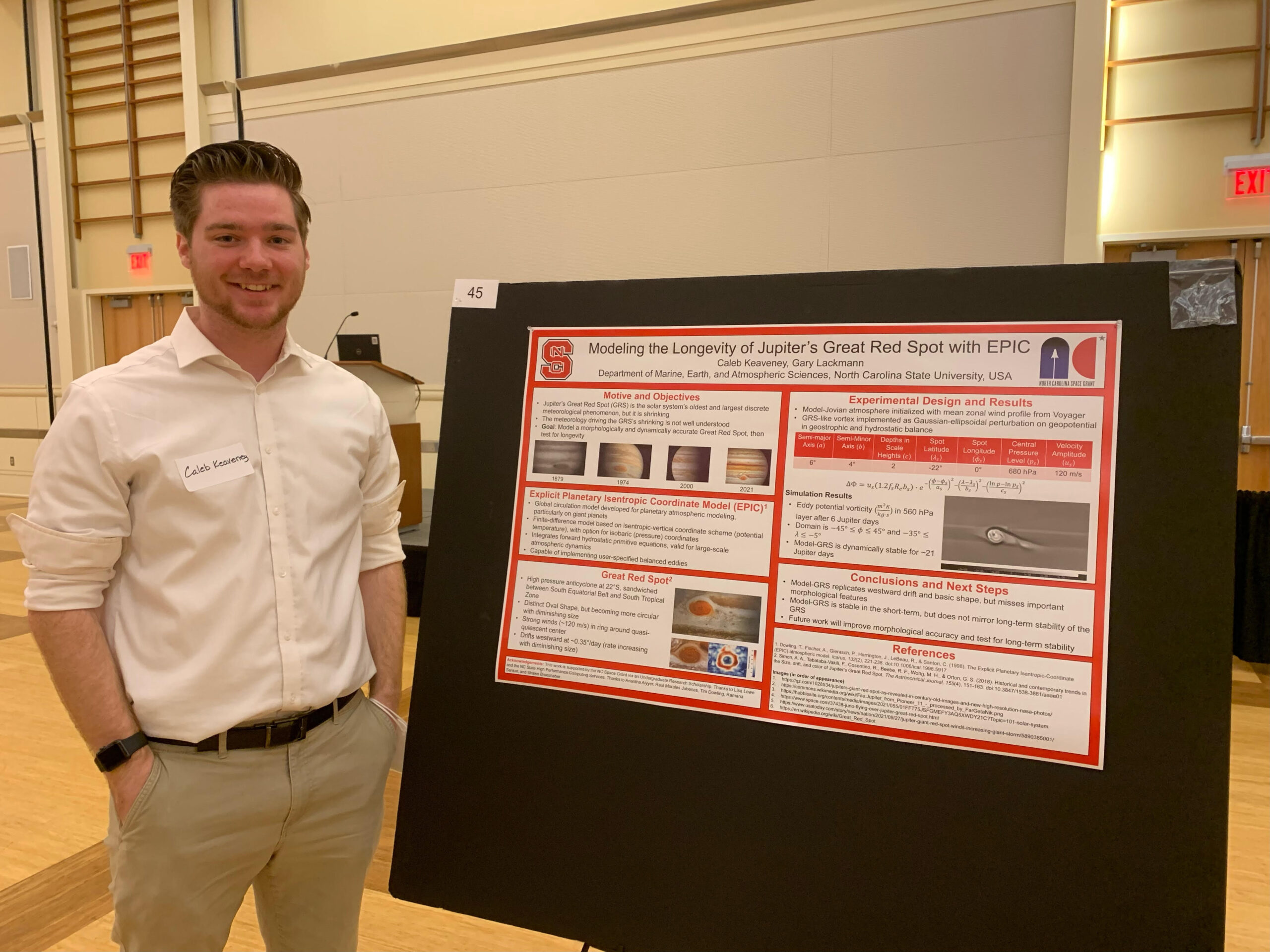
By Chester Brewer
In this edition of Spotlight on Our Students, we were able to talk with University Honors and Scholars Program (UHSP) student Caleb Keaveney, a third-year student double-majoring in meteorology and applied mathematics, about his groundbreaking research which was awarded a Goldwater Scholarship earlier this year.
UHSP: Caleb, first of all, congratulations on being awarded the Goldwater for your research work. That’s quite an accomplishment. To get us started, would you tell us about what sparked your interest in the work you are doing that led to your Goldwater award?
CK: I have been interested in astronomy for as long as I can remember, but my first specific memory related to planetary science is watching Crash Course Astronomy on YouTube the summer before high school. The series covers every planet in some detail, and there was something about the diversity of the planets in the solar system that just fascinated me. I began to wonder how all the planets work and why they look and behave so differently from each other, and I am still driven by those questions.
UHSP: That sounds like the beginning of your professional autobiography — having a set of fundamental research questions that drives the work you do. Tell us specifically about what you are researching and what you hope to learn from it.
CK: My research is on planetary atmospheres, with a particular focus on Jupiter’s atmosphere. The general goal is to use meteorology to understand why Jupiter looks and changes the way it does, from the Great Red Spot shrinking to the structure and activity in visible cloud layers. Jupiter is the most well-studied of the giant planets, but there are still so many fascinating unanswered questions that people all over the world are trying to figure out. I want to be part of the community trying to answer those questions, and hopefully make some contributions to that effect.
UHSP: That really is fascinating stuff — to look at faraway planets using scientific and mathematic tools to do research. What would you say is the most interesting thing you’ve done so far on this project?
CK: The most interesting thing I’ve done is probably generate a model version of the Great Red Spot on my computer, which is also the most challenging thing I’ve done. The Great Red Spot is the biggest and oldest storm we’ve ever seen — it’s bigger than Earth and probably much older than the United States. The fact that I am alive at a time in history when we have the ability and knowledge to simulate something like that is amazing to me. That said, atmospheric dynamics and working with computers are really hard — there’s no getting around it, but that’s part of what makes science fun. A close second in terms of cool things I’ve done would be Zoom-ing into observation sessions at the NASA Infrared Telescope Facility in Hawaii to look at the outer planets, which was a truly awe-inspiring experience.
UHSP: You really put some perspective on this research with that statement. That’s wild! It really helps the subject come to life when you put it in that context. What is the most valuable thing you’ve learned so far?
CK: The importance of being passionate about your work cannot be understated, especially in science. There are hard days as a scientist, days when nothing makes sense and you feel inadequate for the task at hand. What gets you through those days is believing that what you are doing is worthwhile and seeing purpose in the challenges you face. Being excited about something also helps make connections and build community, which is important for success and happiness in any line of work, especially science.
UHSP: Yes! You have to have the fire inside that keeps you going when things are slow or difficult or really even just boring. How has your time in the UHSP prepared you for this experience?
CK: UHSP helped me get my foot in the door in planetary science research through an Honors contract course opportunity. I took a planetary science course during the early pandemic and wanted to build a connection with the professor despite the remote circumstances, so I reached out and asked to do an Honors contract with him. That was my first project looking at planetary atmospheres. The science I learned and the connection I made with the professor helped me land my first internship at NASA, and helped me find a mentor for my current research at NC State.
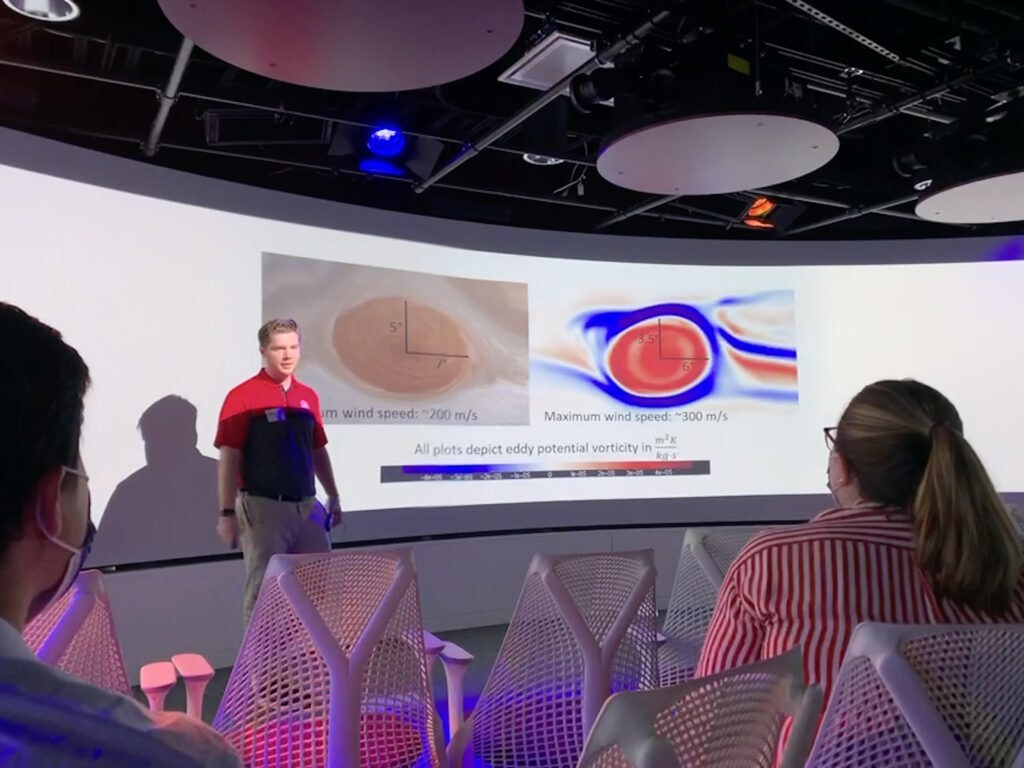
UHSP: Oh, that is the best example of what we hope the Honors contract process can do for our students. It sounds like you were really able to take advantage of that opportunity to make a direct faculty connection. That’s awesome. What do you want to tell other students about how to prepare for experiences like this?
CK: I would say two things. First, your interests and passions are not just personality traits, they are qualifications. Nobody gets started in research having research experience — a lot of what gets you in the door the first time is your enthusiasm. Second, don’t be afraid of reaching out to faculty if you’re interested in their work or have an idea that you want to discuss. Professors love to talk about their work with students, that’s why they are professors. It’s hard to put yourself out there sometimes, but a conversation like that almost always has positive outcomes.
UHSP: Yes, everyone has to start somewhere and discussing a set of common interests with a faculty member is a perfect way to break the ice. What is your plan for using the Goldwater award? What are your next steps?
CK: I’ll be using the Goldwater award to pay for my last year of undergrad, with plans to apply for graduate programs in planetary science or atmospheric science in the fall. In the meantime, I’ll be doing my second internship on the Juno mission at NASA’s Jet Propulsion Laboratory in Pasadena, California this summer, and continuing my Great Red Spot modeling project with Gary Lackmann during my senior year.
UHSP: Well, please keep us posted about your internship this summer. That sounds very cool. To wrap this interview up, do you mind telling us, what’s the best bit of advice you’ve ever received?
CK: This comes from an instructor I had in high school. If you’re having a hard time with something, it’s because it’s hard. You’re not incapable or inadequate, you’re a capable and good person doing something hard. So keep at it and ask for help if you need to.
